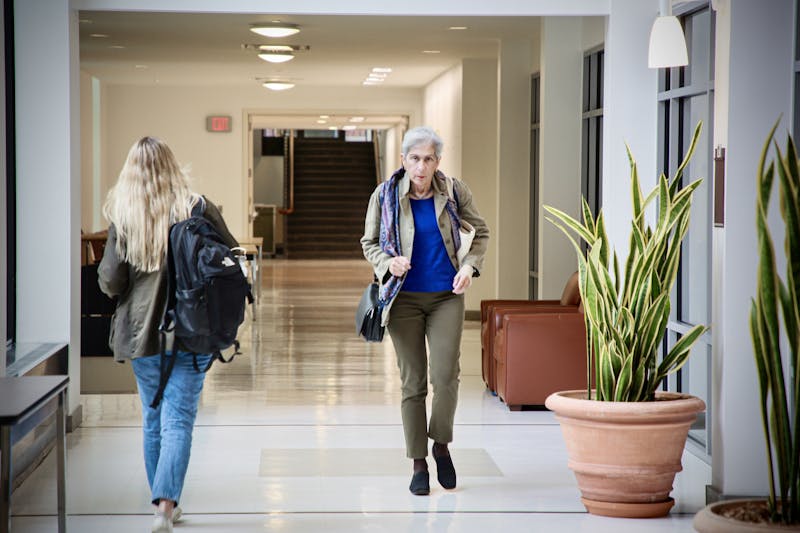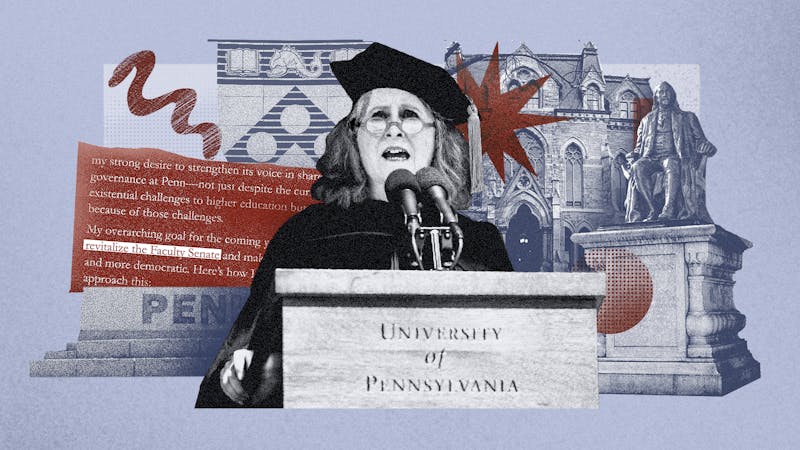Whether it's the strain of being on call during the night, the fear of litigation from patients' families or the mere uncontrollability of being at the beckon call of patients, doctors lead stressful professional lives.
As doctors face mounting pressure from insurance companies, the financial lure of medicine is dissipating while the stress of the job and the fear of litigation are increasing.
More simply put, some would argue that the costs are beginning to outweigh the (financial) benefits.
Wharton senior Kunal Jain had an extremely difficult course load during his time at Penn, juggling business classes with pre-med requirements. Ultimately, though, he opted to approach medicine from the business side rather than attend medical school. Next year, he will be working for a prestigious health-care consulting firm in New York.
It's difficult to argue with Jain's approach. He will be earning an enviable salary next year, while his pre-med counterparts have to wait about 10 years before they can earn a comparable salary.
Nevertheless, there are plenty of doctors who are more than satisfied with their jobs -- despite the fact that physicians' salaries are, on the whole, decreasing.
"From my standpoint, there isn't a more satisfying profession," my father, a cardiologist, told me. "To be able to alleviate suffering and restore happiness to somebody -- there isn't a better feeling in the world."
Still, he admits that it is difficult to be content as a doctor, without financial security. "As with everything, finances rule," he said.
And yet, as I attempt to devise a plan for my future, the idealist in me still clings to the advice my former boss Patrick Baker gave me two summers ago when I interned for Misher Films in Los Angeles: "Whatever you do, don't do it for the money. Follow your passion. The success and the money will come."
My father agrees.
"I don't know any doctor who entered the profession for the money," he told me.
At the same time, though, we are all concerned about attaining financial security. We all want to live comfortably.
And therein lies the dilemma for us 20-somethings trying to figure out our futures.
On the one hand, we have successful people telling us that the key to happiness is to enter a field for the right reasons. On the other, we are all concerned about money to some extent.
So which path do we choose? How do we balance these two seemingly conflicting motivations and desires?
Hoping for guidance, I turned to the two people I admire and respect most in this world: my parents.
My father quoted a Jewish text, the "Ethics of our Fathers," which asks: "Who is rich? He who is happy with his lot."
My mother, a professor of psychology at Loyola Marymount University in Los Angeles, gave me similar advice. When I told her I was considering law school, she recognized hesitation in my voice. "You know," she told me, "I'll be just as proud of you if you're a journalist and not a lawyer." It was as if she was saying success and pride are not measured in dollars.
It is easy to agree with my parents' advice in principle, but in practice it is more difficult. For the past four years, I have been writing for The Daily Pennsylvanian, and it has been a truly rewarding experience.
This column is not the end of my journalistic career -- I will be working, in some capacity, for The Jerusalem Post next year. But after that, I plan to attend law school, and I am content with my decision.
While I won't be molding young minds like my mom or healing patients' hearts like my dad, I know that I can use my law degree to effect positive change.
And the same goes for Jain. Down the line, if he can make a drug cheaper for those who need it but can't afford it, he will be saving lives, just as a doctor saves lives in the emergency room.
It is our duty -- whether as doctors, lawyers, reporters or consultants -- to find a way to use our professions to impact the world positively. The opportunities are there -- to defend a person whose rights have been infringed; to report a story that otherwise would not have been told; to help hospitals treat patients more effectively.
All we have to do is seize them.
Josh Pollick is a senior political science major from Los Angeles. On Point appears on Mondays.
The Daily Pennsylvanian is an independent, student-run newspaper. Please consider making a donation to support the coverage that shapes the University. Your generosity ensures a future of strong journalism at Penn.
DonatePlease note All comments are eligible for publication in The Daily Pennsylvanian.







